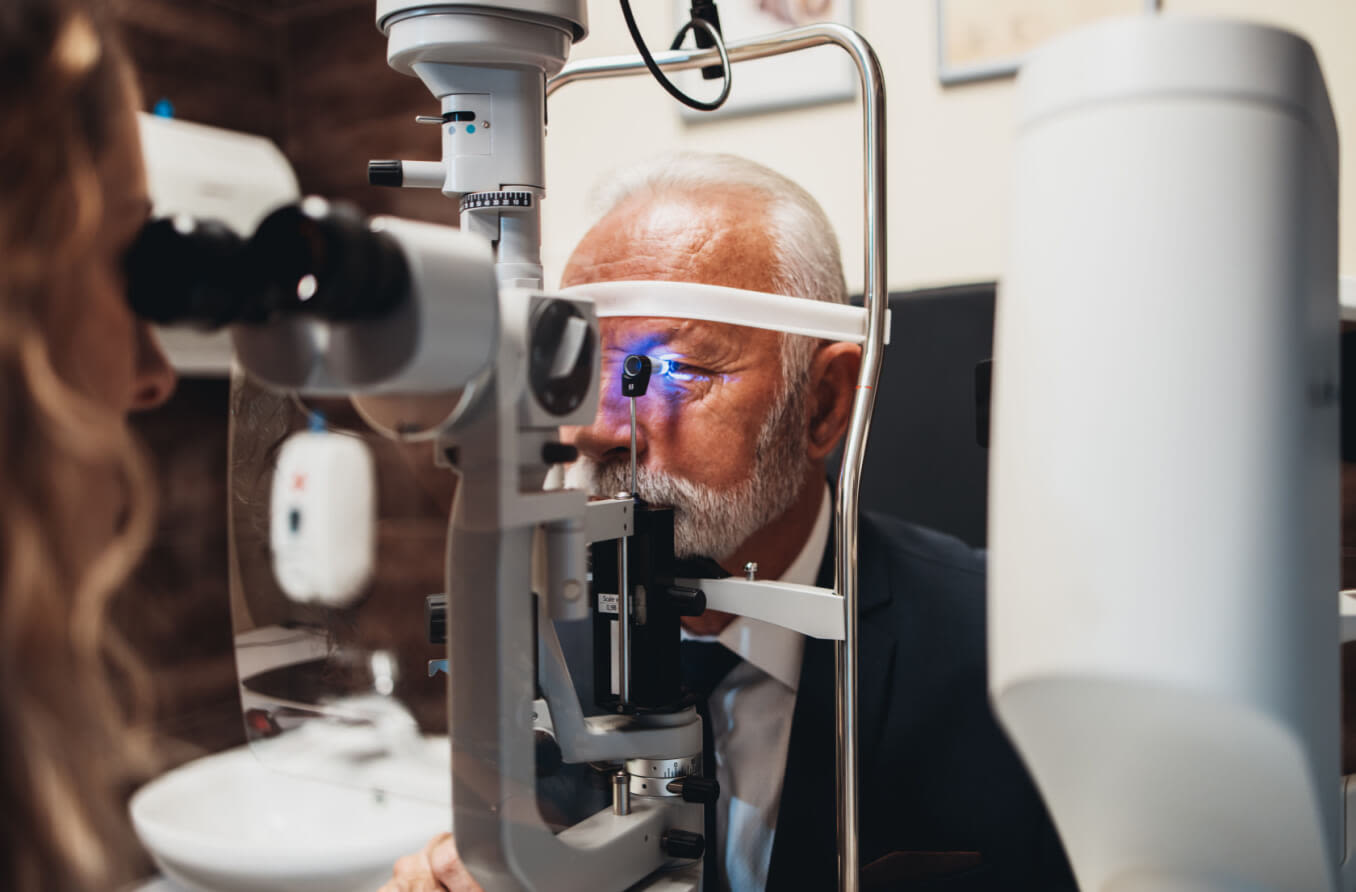Tips on how to protect eyes and vision

Protecting your eyesight is one of the most important things you can do to help maintain your quality of life.
According to the World Health Organization (WHO), an estimated 1.3 billion people worldwide live with some form of vision impairment. The organization also says the leading causes of vision impairment are uncorrected refractive errors and cataracts, and that the majority of people with vision impairment are over age 50.
Approximately 80 percent of all vision impairment globally is avoidable, according to WHO.
Tips for protecting your eyes and vision
Here are a few simple steps to protect your eyesight and keep your eyes healthy as you age:
1. Know your risk factors for eye diseases.
Be aware of your personal health and your family’s health history. For example:
Do you or anyone in your family have diabetes?
Is there a personal of family history of high blood pressure?
Are you over 65 years of age?
Are you of African descent and over the age of 40?
Any of these traits increase your risk for sight-threatening eye diseases.
2. Have your blood sugar and blood pressure checked regularly.
If undetected or left untreated, these diseases can cause serious eye problems. In particular, diabetes and high blood pressure can lead to vision loss from diabetic retinopathy and eye strokes.
3. Pay attention to any changes in your vision.
If you start noticing changes in your vision, consult an eye doctor immediately. Signs to look for include:
Hazy vision
Poor night vision
Flashes of light
Swelling of your eyes or eyelids
4. Exercise frequently.
Some studies suggest that regular exercise — such as walking — can reduce the risk of age-related macular degeneration by up to 70 percent.
5. Protect your eyes from UV.
When outdoors during daytime, always wear sunglasses that shield your eyes from 100 percent of the sun's harmful ultraviolet (UV) rays. This may help reduce your risk of cataracts, pinguecula and other eye problems.
6. Eat a healthy and balanced diet.
Research has shown that antioxidants may reduce the risk of cataracts. These antioxidants are obtained from eating a diet containing plentiful amounts of fruits and colorful or dark green vegetables. Studies also have shown that eating fish rich in omega-3 fatty acids may reduce your risk of developing macular degeneration.
Consider supplementing your diet with eye vitamins to make sure you are getting adequate amounts of the nutrients you need to keep your eyes healthy.
7. Have your eyes examined at least every two years.
A comprehensive eye exam, including dilating your pupils, can determine your risk for major eye diseases such as diabetic retinopathy, which has no early warning signs or symptoms.
Regular eye exams also will keep your prescription for eyeglasses or contact lenses up to date so you are seeing as clearly as possible.
8. Don't smoke.
The many dangers of smoking have been well documented. When it comes to eye health, people who smoke are at greater risk of developing age-related macular degeneration, cataracts, uveitis and other eye problems.
In addition to taking the above actions, be sure to wear safety glasses when working with tools or participating in active sports to help prevent eye injuries that potentially could cause permanent vision loss.
There is no guarantee that you will have perfect vision throughout your lifetime. But following the steps above will help decrease your risk of developing a sight-threatening eye problem that could have been prevented.
FIND A DOCTOR: An eye doctor can assess your vision and possibly help you see better at night. Find an eye doctor near you.
Page published on Friday, 22 March, 2019





